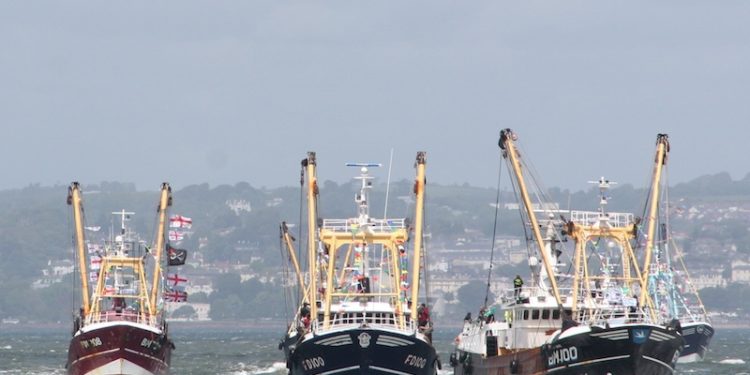The UK government is gearing up for the Fisheries Bill to be introduced in Parliament with a White Paper setting out its stance on how it sees fisheries issues. The ‘Sustainable Fisheries for Future Generations’ is described as a blueprint for a sustainable and profitable industry in the future. The proposals outlined are now subject to a ten-week consultation period.
In its White Paper on fisheries, the UK government predicts that its measures will ’regenerate coastal communities and support future generations of fishermen’ as Britain becomes an independent coastal state. It sets out methods to explore fairer allocation of fishing opportunities, citing zonal attachment, based on distribution of fish stocks, rather than historical data. It also aims to set out how, as an independent coastal state, the UK will have the opportunity to move towards what is described as a fairer share of fishing opportunities – ’overhauling the current system where UK fishermen have received a poor deal that is based on fishing patterns from the 1970s.’
According to a government statement; ’While the UK will continue to abide by Common Fisheries Policy rules during the implementation period, from 2020 we will be negotiating access to waters and fishing opportunities as an independent coastal state.’
‘The Government has presented a broad vision for post-Brexit fisheries that is clear and cogent – and importantly, is aligned with international law. I am sure that it will attract wide support across the industry and Parliament,’ said NFFO chief executive Barrie Deas, welcoming the publication of the ‘Sustainable Fisheries for Future Generations’ White Paper.
Discards & environment
The statement by the UK government ahead of the new White paper’s also makes clear that some form of the discard ban will remain.
’Sitting at the heart of the white paper will be the UK government’s commitment to sustainable fisheries, including ending the wasteful discarding of fish and making clear vessels will only be allowed to fish in our waters if they adhere to our high sustainability standards,’ the statement sets out, while stating that ’as set out in its 25 Year Environment Plan, the government will pursue an ecosystem approach to fisheries management that will minimise impacts on non-commercial species and the marine environment.’
The White Paper will commit to publishing an annual statement on the health of fish stocks, as well as approaches for tackling the problem of choke species, which is described as one of the ’biggest challenges facing the fishing sector.’
What is outlined is for a reserve of quota to be held and used to offset choke species, coupled with a ’new scheme to help fishermen unable to find quota to set against their catch.’
The White Paper is now subject to a ten-week consultation.
‘Fill your boots’ warning
The NFFO and SFF have welcomed the appearance of the fisheries White Paper and SFF chief executive Bertie Armstrong commented that they have been arguing the key points set out by government since the June 2016 referendum.
‘The White Paper enshrines the important elements of a sustainable future for our industry: allowing the UK to become an independent Coastal State, to take charge of who catches what and where, and to resist any attempt to link access to our waters to access to EU markets,’ he said.
‘Of course, there is a long way to go, and we now need our governments to show real backbone in the Brexit negotiations to ensure that these aspirations become reality.’
A note of alarm was immediately sounded by WWF as the announcement of the White Paper was made.
‘We don’t want to see a ‘fill your boots’ fisheries policy that decimates our precious seas and cripples our fishing communities. Proposals must put the right focus on managing fish stocks in a sustainable way and protecting our marine environment,’ commented WWF head of marine policy Lyndsey Dodds.
‘As we leave the EU we must use our power wisely and ensure any increase in fishing doesn’t threaten our marine environment. That means there must be clear commitments to a healthy ocean, underpinned in law in the forthcoming fisheries bill.’









